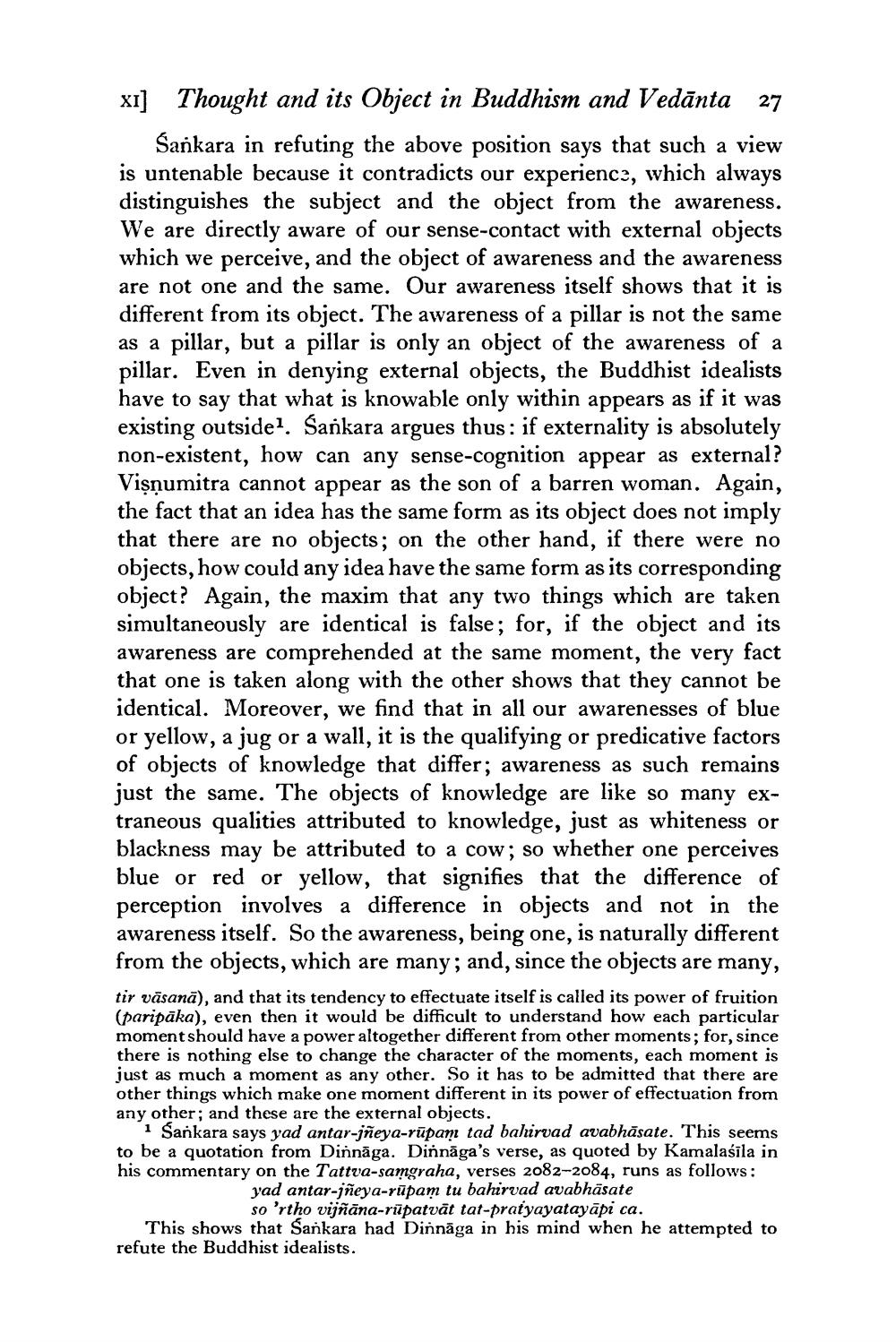________________
XI] Thought and its Object in Buddhism and Vedanta 27
Sankara in refuting the above position says that such a view is untenable because it contradicts our experience, which always distinguishes the subject and the object from the awareness. We are directly aware of our sense-contact with external objects which we perceive, and the object of awareness and the awareness are not one and the same. Our awareness itself shows that it is different from its object. The awareness of a pillar is not the same as a pillar, but a pillar is only an object of the awareness of a pillar. Even in denying external objects, the Buddhist idealists have to say that what is knowable only within appears as if it was existing outside1. Sankara argues thus: if externality is absolutely non-existent, how can any sense-cognition appear as external? Viṣṇumitra cannot appear as the son of a barren woman. Again, the fact that an idea has the same form as its object does not imply that there are no objects; on the other hand, if there were no objects, how could any idea have the same form as its corresponding object? Again, the maxim that any two things which are taken simultaneously are identical is false; for, if the object and its awareness are comprehended at the same moment, the very fact that one is taken along with the other shows that they cannot be identical. Moreover, we find that in all our awarenesses of blue or yellow, a jug or a wall, it is the qualifying or predicative factors of objects of knowledge that differ; awareness as such remains just the same. The objects of knowledge are like so many extraneous qualities attributed to knowledge, just as whiteness or blackness may be attributed to a cow; so whether one perceives blue or red or yellow, that signifies that the difference of perception involves a difference in objects and not in the awareness itself. So the awareness, being one, is naturally different from the objects, which are many; and, since the objects are many,
tir vāsanā), and that its tendency to effectuate itself is called its power of fruition (paripāka), even then it would be difficult to understand how each particular moment should have a power altogether different from other moments; for, since there is nothing else to change the character of the moments, each moment is just as much a moment as any other. So it has to be admitted that there are other things which make one moment different in its power of effectuation from any other; and these are the external objects.
1 Sankara says yad antar-jñeya-rupam tad bahirvad avabhasate. This seems to be a quotation from Dinnaga. Dinnaga's verse, as quoted by Kamalasila in his commentary on the Tattva-samgraha, verses 2082-2084, runs as follows: yad antar-jñeya-rupam tu bahirvad avabhasate so 'rtho vijñāna-rupatvāt tat-pratyayatayāpi ca.
This shows that Sankara had Dinnaga in his mind when he attempted to refute the Buddhist idealists.




